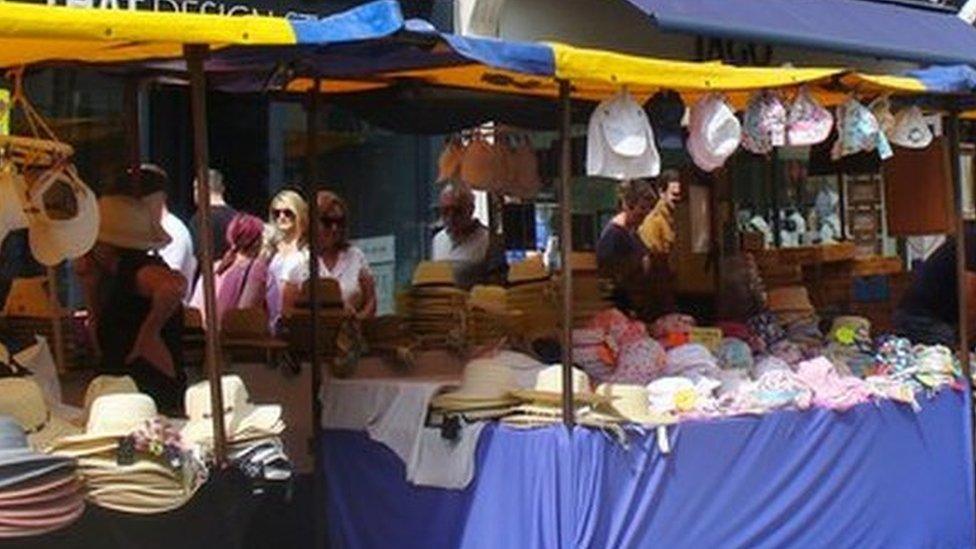St Albans market stall compromise offers 'fresh start'
- Published
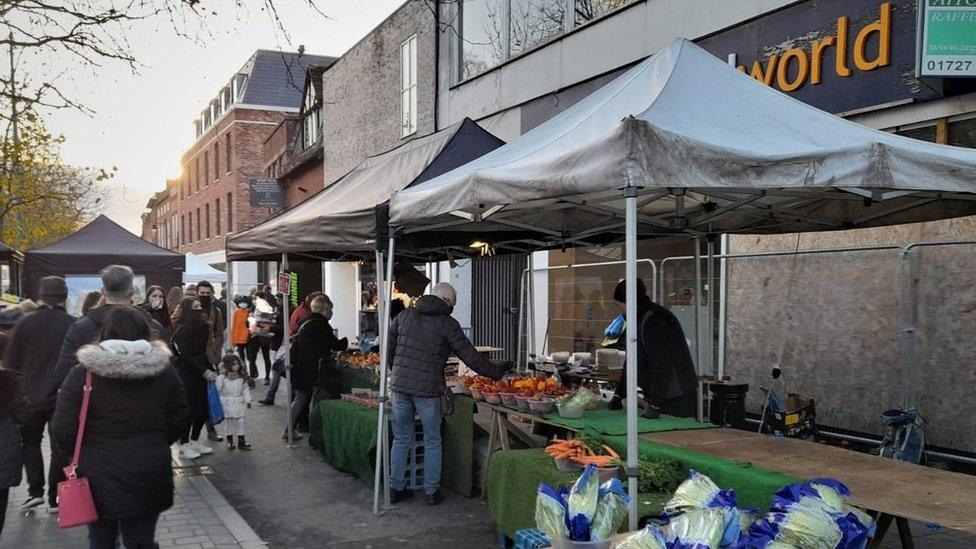
The Hertfordshire council stopped putting up traditional stalls during the pandemic to reduce health risks and traders were told to bring along and erect their own gazebos
A council which planned to scrap a city's traditional market stalls has offered traders a compromise.
St Albans City Council suggested the Hertfordshire city's twice-weekly market should permanently use gazebos introduced during the pandemic.
Some market traders and councillors feared this would put customers off.
The council has now suggested a mix of 80 traditional yellow and blue stalls and 35 matching gazebos to give it a "fresh start".
Covid restrictions meant traders had to bring their own gazebos and put them up.
Previously, council workers erected and took down the stalls, which were stored at a depot.
The decision, which comes after a working group consisting of traders and councillors met to discuss the market's future seven times, was backed by the council's Business and Regeneration Committee.
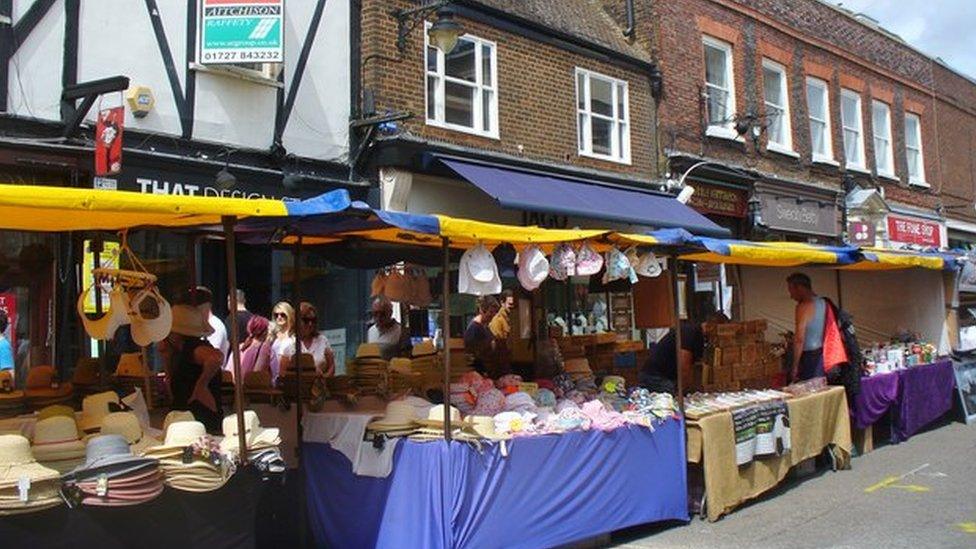
Pre-Covid, St Albans Market had traditionally designed stalls
Labour councillor Katherine Gardner said: "In 1553, St Albans Charter Market was granted its charter. That's quite a while ago and I wonder why if the charter market survived the English Civil War, the First World War, the Second World War... why is it now in 2022, it finally needs a fresh start?"
Robert Donald, who chaired the committee and working group at the Liberal Democrat-run council, said the compromise offered a "fresh start" for the market.
"The recommendations do give clarity to traders and to the public about what they can shortly now expect will happen," he said.
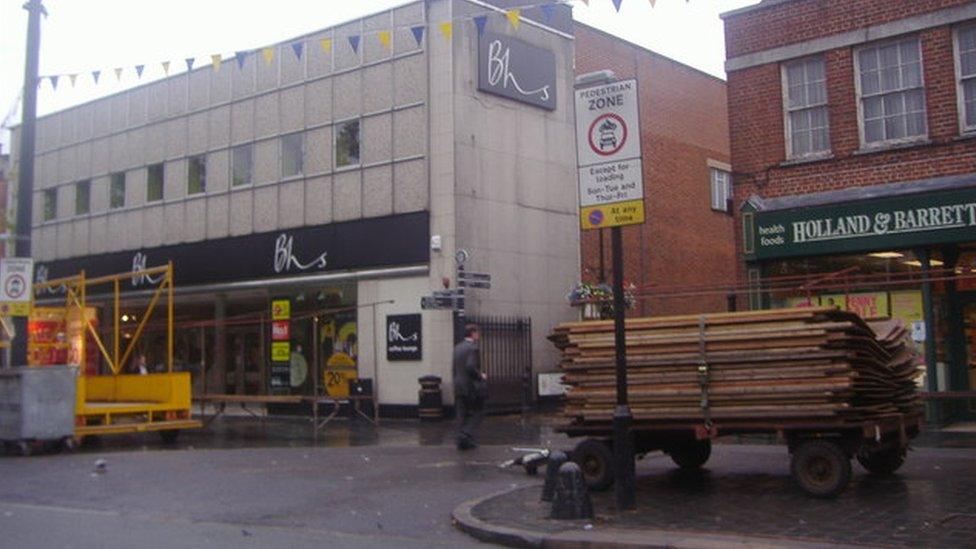
Council workers used to erect and take down the stalls, which were stored at a depot
The compromise will now be subject to an appraisal of costs and the development of a three-year business plan, as well as a further consultation.
The group would assess whether to move the management of the market to a charity over the next 12 months, but the council was not intending to relinquish control of its operation, reported the Local Democracy Reporting Service.
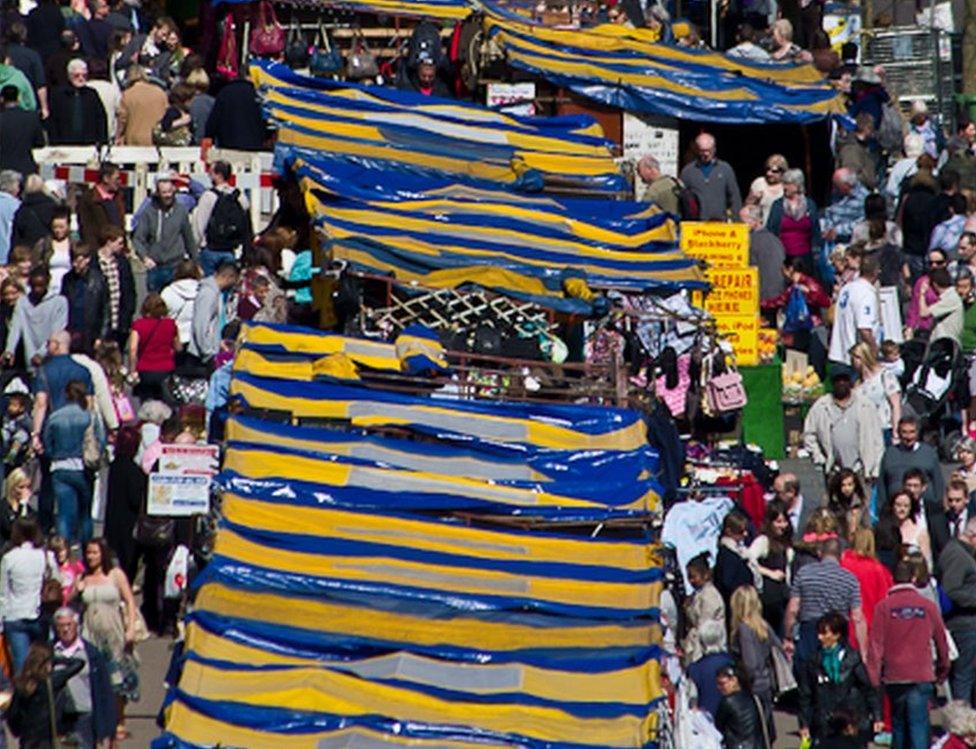
St Albans market was officially granted a Royal Charter to operate in 1553, but it has been documented since the 9th Century

Find BBC News: East of England on Facebook, external, Instagram, external and Twitter, external. If you have a story suggestion email eastofenglandnews@bbc.co.uk, external
Related topics
- Published3 February 2022
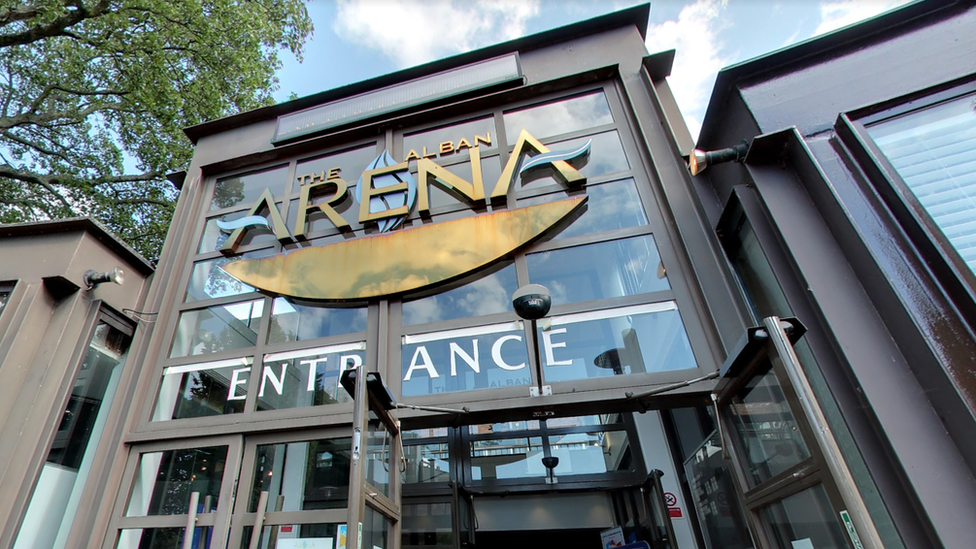
- Published8 January 2022

- Published10 September 2021
